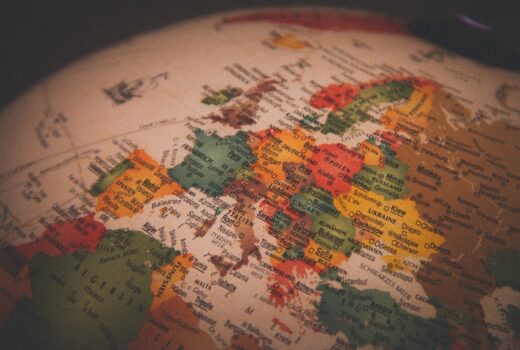Hoe verder met Europa?
U leest zijn artikel uit de FAZ hieronder.
“These days it seems that economic and political events are increasingly intertwined with each other. Every report of a new scientific or technical advance seems to be accompanied by evidence that our comfortable industrial society is coming apart. From France and America to Italy to Germany, political leaders are feeling the heat of public dissatisfaction. Voters have trouble believing that this new globalized world is the friend of the common man. As the controversy over closure of the Nokia plant in Bochum demonstrates, neither government nor business have yet figured out how convince them otherwise.
In the industrial society we used to live in, government and business would agree on what was necessary to find a balance between profits and employment, the company and the community. Factories were built in places which provided the right mixture of labour, resources and geography. The result was logical and above all predictable.
Today traditional industrial logic has been turned on end. Rather than fine tuning production facilities such as Bochum, global companies like Nokia or Siemens or IBM set up networks of production, R&D, design and marketing, which make it possible to deliver products simultaneously throughout the world at the lowest possible cost. To achieve this goal, they shift the mix of resources regularly.
Politicians may be mad. Workers may demonstrate. From the perspective of global integration, these angry protests are useless. The problem is not companies such as Nokia or Siemens, even though they have much to learn about gaining political acceptance for their investment decisions. It is about the new logic of global competition in the Information Age.
There has been plenty of rhetoric in Europe about meeting the challenges of globalization. The Lisbon goals, adopted in 2000, have given Europeans a pretty good agenda for keeping up with the rest of the world. European political leaders made a strong commitment to invest in science, technology and innovation.
But did they really mean it? Do politicians, business leaders and voters understand that their most basic ideas about industry, employment and social security must change if Europe has any hope of becoming the world’s leading economic region? The public debate too often still focuses on wages or job security. But they are no longer the main problem. The new paradigms concern market creation, mobility of resources and risk-taking as well.
The Bochum debate provides an excellent case study. Most of the anger against Nokia seems to originate in the belief that in a global environment, innovation which creates new structures can proceed side-by-side with the predictability and stability of the old structures. But global society must increasingly be seen as a single enterprise. Trying to make existing patterns of production “fit for globalization, “ as leaders often say, only creates capacity which is less efficient than more modern facilities elsewhere. In reality, Western European countries have little future in the mass production of basic items such as mobile telephones. Efforts to save existing practices only postpone development of a more modern role in expanding global enterprises.
So far, European industry has been the undisputed winner in globalization. Many business leaders with whom we have spoken claim they cannot get politicians to understand how globalization and economic restructuring are building a better future for everyone.
But politicians ultimately have only one set of customers – the voters. And at the moment the voters are not buying what their elected officials are trying to sell. This suggests that neither business nor politics has yet figured out how to describe what is happening in politically understandable terms. Existing means of communication between government, labour, education and industry won’t let this happen. Increasingly, they don’t even talk from a common vocabulary.
As Europe shifted from an agrarian to an industrial society, it experienced one of the most dramatic upheavals in population and social structures in history. Bochum itself was built on immigrants from the East. A similar process is underway today as Europe moves from an industrial to a knowledge-driven economy. Mobility of resources is the key to creating global competitiveness. To ensure a harmonious transition, new economic structures and innovative concepts of social justice are badly needed. Europe has great opportunities for the future. But to take advantage of them our leaders, government and industry must work together to find a new definition of corporate social responsibility. And politicians must begin to learn more about the radical economic changes now underway. They are every bit as far reaching as those which caused the upheavals of the first industrial revolution 150 years ago.
The success of Europe in this process cannot be measured by the number of traditional industrial jobs to save but by the number to be created.”
Esko Aho, former Prime Minister of Finland, is President of Sitra, the Finnish Innovation Fund.
John Kornblum is former United States Ambassador to Germany.
Meest Gelezen
Wederom intimidatie van journalisten door universiteit, nu in Delft
‘Burgerschapsonderwijs moet ook verplicht worden in hbo en wo’
Raad van State: laat taaltoets nog niet gelden voor hbo-opleidingen
Vrouwen houden universiteit draaiende, maar krijgen daarvoor geen waardering
Extra geld voor bètafaculteiten is daar nooit terechtgekomen

